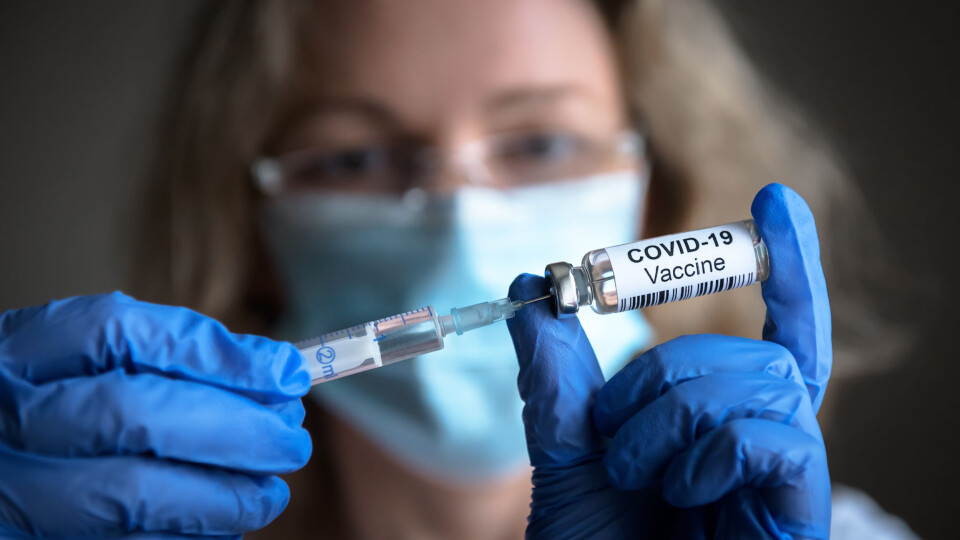-
E-gates updated in France as launch of EES checks approaches
Progress continues towards October start of delayed border checks
-
France’s wild garlic season is here – but foragers should beware toxic lookalikes
Spring brings the fragrant plant to woodlands nationwide. We explain what to look out for
-
Record river levels, more evacuations: Latest on flooding in south-west France
Alerts are in place across five departments and residents in some areas are told to stay home
Covid France: over 208,000 new cases recorded in last 24 hours
Health Minister Olivier Véran issues message to unvaccinated people: ‘it is unlikely that you will escape it this time, the virus is circulating too quickly’

[Article updated on December 29 at 16:40 to include the Institut Pasteur's initial findings regarding Omicron]
More than 208,000 people tested positive for Covid in the 24 hours up to this afternoon (December 29), with Health Minister Olivier Véran saying that “every second, two people tested positive in France.
“In view of the figures that we are recording, I am inclined to talk about a tidal wave of cases,” Mr Véran said as he presented plans to convert the French health pass into a vaccine pass to the French Parliament’s Commission des Lois (Law Committee).
“These are figures which make you feel dizzy. Every second, two people tested positive in France” for Covid yesterday (December 28).
Today’s case numbers break the record which was set only yesterday, when nearly 180,000 new infections were recorded.
Read more:Covid France: record 180,000 new cases reported in 24 hours
“You must get vaccinated, or we won’t be able to get out of this,” Mr Véran said.
“70% of intensive care patients in Parisian hospitals are not vaccinated. Of those [in intensive care] who are already vaccinated, 80% are immunosuppressed. These figures attest to the efficacy of the vaccine.
“To unvaccinated people I say this: it is unlikely that you will escape it this time, the virus is circulating too quickly.”
Omicron potentially 80% less virulent than Delta
France's record case rates are most probably linked to the spread of the Omicron variant, which is more contagious than Delta. However, the Institut Pasteur has today published modelling which has estimated that the new variant is "around 80% weaker" in terms of virulence than Delta.
"By comparing different scenarios, we think that the Omicron wave could remain manageable with moderate measures in place," the Institut stated.
It is, however, "difficult for the moment to evaluate with precision the intrinsic severity of the Omicron variant," it continued, adding that it has examined various potential outcomes from this new surge in infections.
If Omicron is indeed 80% less virulent than Delta but 67% more contagious, hospitalisations could peak at 2,700 per day if people in France do not change their current behaviour.
If people reduce their social contact by 10-20%, however, this peak could be limited to 1,400-1,900 hospital admissions per day.
However, if Omicron is found to be even more transmissible – potentially up to 84% more likely to be passed on than Delta – the hospitalisations peak will reach 2,700 per day even if people reduce their contacts by 20%, and 4,400 if they make no changes to their behaviour.
"As a reminder, the hospital admission peaks reached 3,500 and 2,700 per day in the first and second waves," the Institut stated.
The Institut added that an acceleration of the vaccination campaign could serve to curb the sharp rise in infections. Injecting 1.2 milion booster doses per day could reduce the hospitalisation peak by 9-17%.
"New data should be available within the next seven to 14 days which will allow to reduce the range of possible scenarios," it added.
As of yesterday (December 28), there are now 17,405 Covid-positive patients in hospital with Covid and 3,416 in intensive care.
During France’s second Covid wave, 32,654 people had been admitted to hospital by November 12, 2020, while the number of hospitalisations had peaked at 32,131 in the spring of that year, Les Echos reports.
Related stories
Six questions on France’s new anti-Covid measures answered
France’s new Covid measures: The four key dates
























